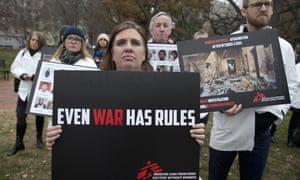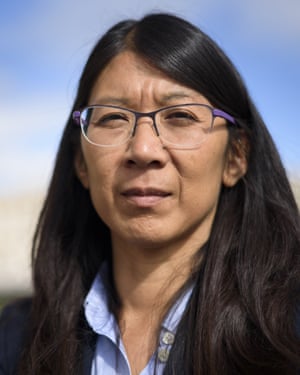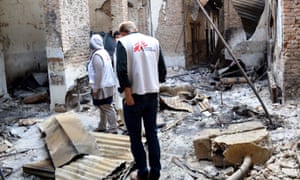Link
'Syria's tomorrow' was launched by former Syrian National Coalition chief Ahmed Jarba during a Cairo conference attended by senior officials from Egypt, Syria, Lebanon, Palestine and Russia.
The former head of the Syrian National Coalition has launched a new opposition movement - backed by Egypt and the UAE - in what appears to be a major shift in the parties involved in the Syrian conflict.
Ahmad Jarba proclaimed the formation of the Ghad al-Suri ["Syria's Tomorrow"] movement late on Friday in the Egyptian capital.
Syrian opposition figures, Egyptian and Lebanese officials - and a Russian embassy envoy - were among those who attended the inauguration conference in Cairo. Pro-regime figures were also noted to have attended the launch.
Fatah's former Gaza security chief, Mohammad Dahlan, who has taken a new role in a Russian-Emirati-Egyptian alliance, also attended the launch of the new movement.
Sources close to Jarba told The New Arab that Jarba was attending a closed meeting in a hotel owned by the Egyptian intelligence service on Saturday with Dahlan and Qassem Khatib, a senior opposition leader backed by Syrian President Bashar al-Assad.
Dahlan, who had been accused of rights abuses while security chief in Gaza, has been in exile in the UAE since 2011, after allegations that he had a role in the alleged poisoning of Palestinian leader Yasser Arafat.
He currently serves as a security adviser for Mohammed bin Zayed, the Crown Prince of Abu Dhabi and Deputy Supreme Commander of the UAE Armed Forces.
Mohamed Bassam al-Malek, an Egypt-based Syrian opposition figure, said that the new movement comes amid Russia's "dirty work" against the Syrian opposition ahead of the upcoming Riyadh talks.
"Russia is seeking an alternative movement in case it has to withdraw its support for Assad remaining in power," Malek told The New Arab.
"Moscow will take any alternative to Assad that allows its troops to remain as long as possible in Syrian territories," he added.
According to an Egyptian diplomatic source in the foreign ministry, Cairo will support any efforts to unite the Syrian opposition.
The source also added that Egypt's stance on the Syrian conflict did not clash with that of Saudi Arabia - but they are not matching either.
Egypt does not support Assad himself, the source argued, but it "supports any regime or civil movement that counters extremism".
Meanwhile, sources told The New Arab that a delegation from the Islamist Palestinian Hamas movement was also visiting Cairo on Saturday to meet with Egyptian intelligence officials.
This will be Hamas' first visit to Cairo since Islamist President Mohamed Morsi was ousted by a military coup in 2013.
The delegation is set to meet with Egypt's intelligence chief Khaled Fawzy, following a prior agreement with Hamas' political bureau chief Khaled Mashaal.
Syrian opposition figures, Egyptian and Lebanese officials - and a Russian embassy envoy - were among those who attended the inauguration conference in Cairo. Pro-regime figures were also noted to have attended the launch.
Fatah's former Gaza security chief, Mohammad Dahlan, who has taken a new role in a Russian-Emirati-Egyptian alliance, also attended the launch of the new movement.
Sources close to Jarba told The New Arab that Jarba was attending a closed meeting in a hotel owned by the Egyptian intelligence service on Saturday with Dahlan and Qassem Khatib, a senior opposition leader backed by Syrian President Bashar al-Assad.
Dahlan, who had been accused of rights abuses while security chief in Gaza, has been in exile in the UAE since 2011, after allegations that he had a role in the alleged poisoning of Palestinian leader Yasser Arafat.
He currently serves as a security adviser for Mohammed bin Zayed, the Crown Prince of Abu Dhabi and Deputy Supreme Commander of the UAE Armed Forces.
Mohamed Bassam al-Malek, an Egypt-based Syrian opposition figure, said that the new movement comes amid Russia's "dirty work" against the Syrian opposition ahead of the upcoming Riyadh talks.
"Russia is seeking an alternative movement in case it has to withdraw its support for Assad remaining in power," Malek told The New Arab.
"Moscow will take any alternative to Assad that allows its troops to remain as long as possible in Syrian territories," he added.
According to an Egyptian diplomatic source in the foreign ministry, Cairo will support any efforts to unite the Syrian opposition.
The source also added that Egypt's stance on the Syrian conflict did not clash with that of Saudi Arabia - but they are not matching either.
Egypt does not support Assad himself, the source argued, but it "supports any regime or civil movement that counters extremism".
Meanwhile, sources told The New Arab that a delegation from the Islamist Palestinian Hamas movement was also visiting Cairo on Saturday to meet with Egyptian intelligence officials.
This will be Hamas' first visit to Cairo since Islamist President Mohamed Morsi was ousted by a military coup in 2013.
The delegation is set to meet with Egypt's intelligence chief Khaled Fawzy, following a prior agreement with Hamas' political bureau chief Khaled Mashaal.


















